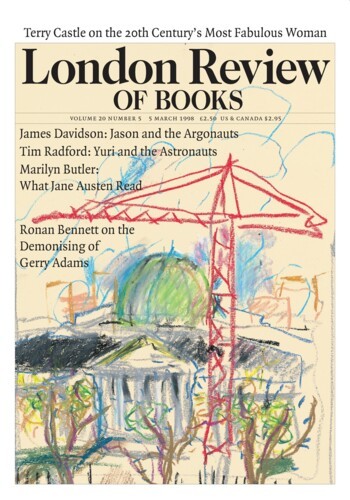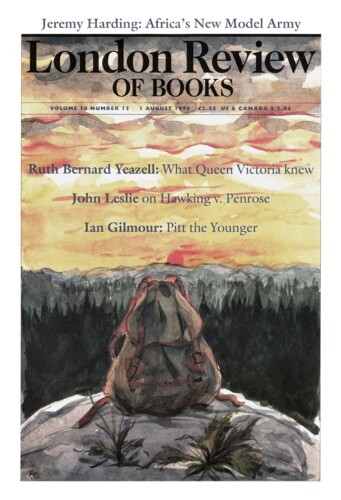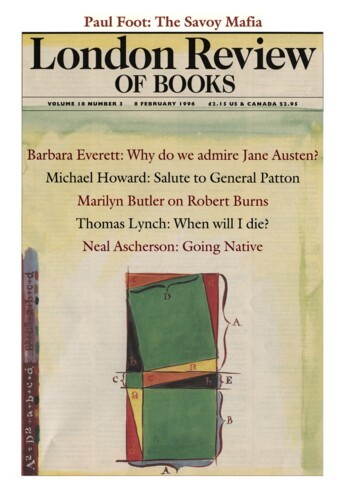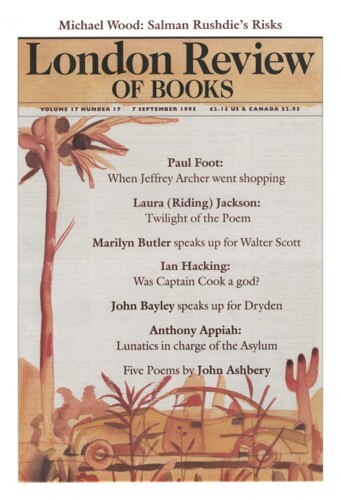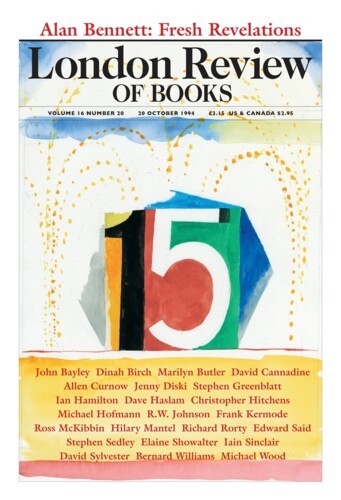Simplicity: What Jane Austen Read
Marilyn Butler, 5 March 1998
Do we need another Life of Jane Austen? Biographies of this writer come at regular intervals, confirming a rather dull story of Southern English family life. For the first century at least, the main qualification for the task was to be a relative – Henry Austen, ‘Biographical Notice’ to Northanger Abbey and Persuasion (1818), the Rev. J.E. Austen-Leigh, Memoir of Jane Austen (1870) and W. and R.A. Austen-Leigh, Jane Austen: Her Life and Letters (1913). These pioneers had two main messages to convey: that the author was a very domestic woman, and that outside her family she had no profound attachments or interests. Subsequent biographers rightly complain that this puts a damper on the exercise. But the nine hundred new pages on Austen’s life do not, in the event, significantly change what is still a family record.’‘
